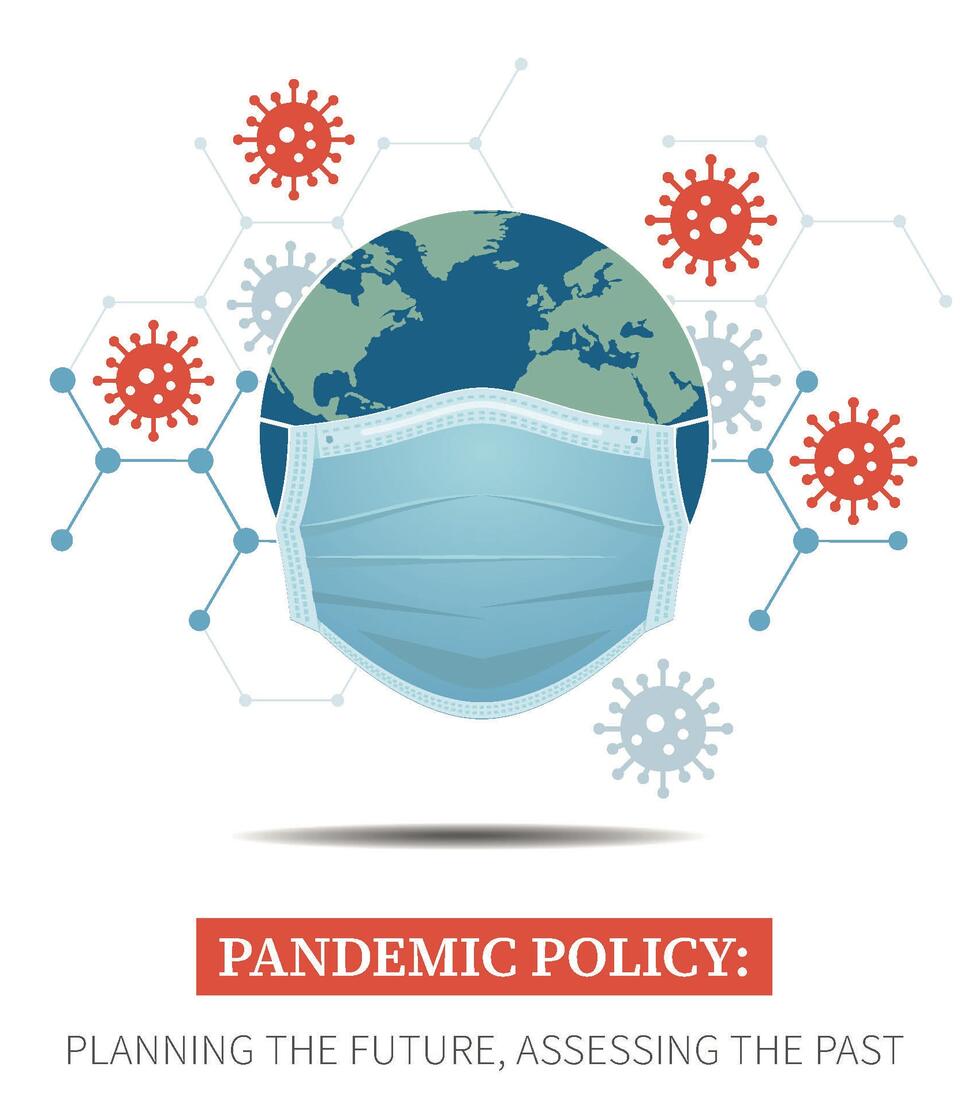Pandemic Policy: Planning the Future, Assessing the Past
Pandemic Policy: Planning the Future, Assessing the Past
Friday, October 4, 20248:30 AM - 5:15 PM (Pacific)
Frances C. Arrillaga Alumni Center
326 Galvez St.
Stanford, CA 94305

Bringing together esteemed academics, public health practitioners, journalists, and policymakers from all sides of the COVID-19 policy debate in conversation with one another with an eye toward reforms in science and public health to better serve the public.
With millions of lives lost, the COVID-19 pandemic wrought havoc on the world. Despite decades of planning for the “next” pandemic, public health systems faced tremendous stress and often buckled and failed. Universities served as centers for valuable scientific work, but did they fail to support their academic freedom mission by sponsoring vigorous discussion and debate on matters of pandemic policy? To do better in the next pandemic, we need to learn the lessons of the COVID-19 era.
The conference was organized to highlight some of the many important topics that public health officials and policymakers will need to address in preparing for future pandemics. The speakers represent a wide range of views on this issue. We look forward to a civil, informed, and robust debate.
The conference was supported in part by contributions from Dr. George F. Tidmarsh and from Collateral Global, a UK Charity.
AGENDA
Program Conductor/Emcee: Laura Carstensen, Professor of Psychology, Stanford University
Opening Remarks: Jonathan Levin, President, Stanford University
Welcome and Introduction: Jay Bhattacharya, Professor of Health Policy, Stanford School of Medicine
Panels
Panel 1: Evidence-Based Decision Making During a Pandemic
The interventions undertaken to control the COVID-19 pandemic—stay-at-home orders, extended school closures, social distancing, mask mandates, vaccine mandates—were unprecedented in their scope and global impact. How well did these policies work to protect the public from COVID-19 and what were their unintended consequences? How can scientists better inform pandemic policy in real time during the next pandemic?
Moderator: Wilk Wilkinson, Derate the Hate Podcast Creator/Host
Speakers:
- Monica Gandhi, Professor of Medicine, Division of HIV, Infectious Diseases, and Global Medicine, UCSF
- Charlotte J. Haug, Executive Editor, NEJM AI
- Marty Makary, Professor of Surgery, Johns Hopkins School of Medicine
- Andrew Noymer, Associate Professor of Population Health & Disease Prevention, UC Irvine
- Douglas K. Owens, Professor of Health Policy, Stanford School of Medicine
- Josh Salomon, Professor of Health Policy, Stanford School of Medicine
- Anders Tegnell, Senior Expert, former State Epidemiologist of Sweden, Public Health Agency Sweden
Panel 2: Misinformation, Censorship, and Academic Freedom
During the pandemic, the challenge of balancing public health protection with the preservation of free speech became a focal point of debate. On one side, governments and public health authorities took measures to limit the spread of misinformation, sometimes by restricting certain content on social media and influencing traditional media narratives to align with official guidance. On the other side, some scientists and academics voiced concerns about these restrictions, arguing that they hindered open discourse and the exchange of diverse perspectives. This raises important questions: Does limiting speech during a public health emergency protect the public by reducing harmful misinformation, or does it risk silencing valid dissent and promoting a singular, approved viewpoint?
Moderator: George Tidmarsh, Adjunct Professor, Pediatrics and Neonatology, Stanford School of Medicine
Speakers:
- Scott Atlas, Robert Wesson Senior Fellow in Health Policy, Hoover Institution
- Alex Berenson, Journalist and Author
- Gardiner Harris, Journalist and Author
- Neil Malhotra, Edith M. Cornell Professor of Political Economy, Stanford Graduate School of Business
- Michael McConnell, Richard and Frances Mallery Professor of Law, Director of the Constitutional Law Center, Stanford Law School, and Hoover Senior Fellow, Hoover Institution
- Jenin Younes, Litigation Counsel at the New Civil Liberties Alliance
Panel 3: Pandemic Policy from a Global Perspective
Because the world economy is global in scope, pandemic policy decisions made by Western governments had profound impacts on the health and economic prospects of people worldwide, including the collapse of global markets, severe supply chain disruptions, large-scale government borrowing to finance pandemic policies, and global inflation. How can the interests of the world’s poor be better represented in the decisions of Western government during the next pandemic?
Moderator: Eran Bendavid, Professor of Medicine and of Health Policy, Stanford School of Medicine
Speakers:
- Kevin Bardosh, Director and Head of Research, Collateral Global, and Evidence Informed Fellow, Kellogg College, University of Oxford
- Peter Blair, Associate Professor of Education, Graduate School of Education, Harvard University
- Sunetra Gupta, Professor of Theoretical Epidemiology, University of Oxford
- Anup Malani, Lee and Brena Freeman Professor, University of Chicago Law School
- Yann A. Meunier, MD, Professor in Global Health, International Institute of Medicine and Science, Inc., Rancho Mirage, CA, and CEO, HealthConnect International, LLC
- Vinay Prasad, Professor, Department of Epidemiology and Biostatistics, UCSF
Panel 4: COVID-19 Origins and the Regulation of Virology
The stakes in the debate about the origin of the pandemic could not be higher. If the pandemic started from an inadequately regulated wildlife trade or zoonoses, reforms to reduce the likelihood of human contact with wild species is vital. On the other hand, if the pandemic started due to dangerous laboratory experiments and inadequate protocols to prevent leaks, then more stringent regulation of such experimentation is warranted. What is the evidence on these topics, and what is the path forward?
Moderator: Jan Jekielek, Senior Editor, The Epoch Times
Speakers:
- Sunetra Gupta, Professor of Theoretical Epidemiology, University of Oxford
- Laura H. Kahn, Co-Founder, One Health Initiative
- Bryce Nickels, Professor of Genetics, Lab Director, Waksman Institute of Microbiology, Rutgers University, and Co-Founder, Biosafety Now
- Simon Wain-Hobson, Emeritus Professor, Pasteur Institute, Paris
- Alex Washburne, Scientific Consultant, Selva Analytics LLC
Conference Closing Remarks: John Ioannidis, Professor of Medicine and of Epidemiology and Population Health, Stanford School of Medicine
Photos are under copyright. If used, you must credit: Photos by Rod Searcey/Department of Health Policy




















